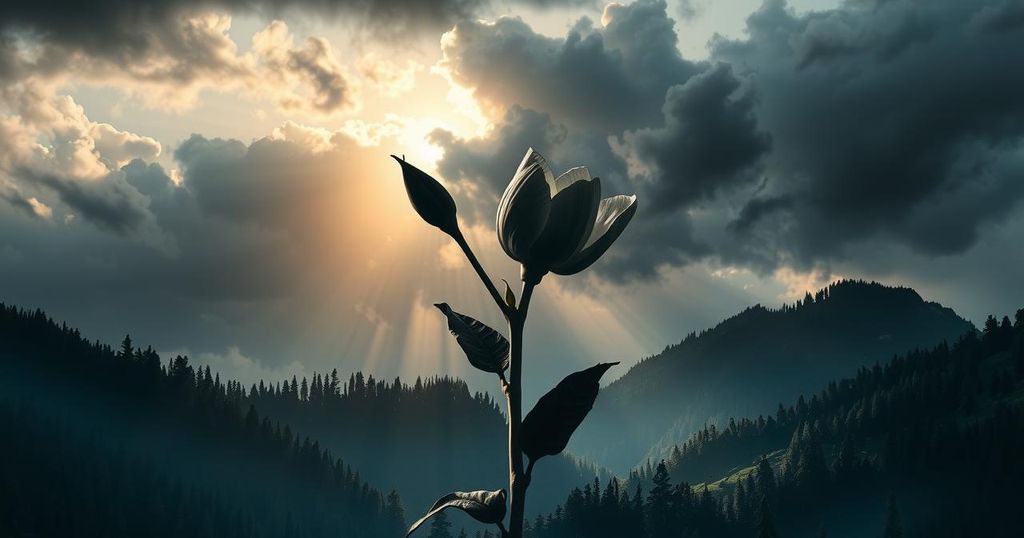Kagame Defends Rwanda’s Role as M23 Rebels Advance in Eastern DRC

Rwandan President Paul Kagame defends Rwanda’s involvement in Eastern DRC as M23 rebels seize Goma, signaling a significant conflict escalation. Kagame criticizes regional leaders for ineffective diplomacy and warns of Rwanda’s readiness for confrontation. The situation has prompted international backlash and concerns regarding potential humanitarian crises and renewed warfare in the region.
In a defiant statement, Rwandan President Paul Kagame defended Rwanda’s involvement in the eastern Democratic Republic of Congo (DRC), where M23 rebels, allegedly supported by Kigali, have recently captured Goma, the region’s largest city. Kagame expressed Rwanda’s readiness for conflict and criticized neighboring countries for their ineffective diplomatic efforts to settle ongoing issues between Congo and the M23 over recent years. He specifically condemned comments made by South African President Cyril Ramaphosa regarding the escalation of violence, stating that South Africa’s role has not aligned with peacekeeping efforts.
The M23 fighters, having taken Goma, are now advancing south towards Bukavu, further complicating an already volatile situation. This marks a significant resurgence of conflict in a region plagued by instability since the 1994 Rwandan genocide. Rwanda’s continuing military interventions in the DRC have drawn international criticism, with multiple nations expressing concern regarding the humanitarian crisis and potential for renewed regional conflict.
Kagame’s comments came during an emergency East African Community summit, during which he condemned the lack of decisive action in resolving issues between the DRC and the M23. He remarked, “Is there anybody among us who did not see this coming?” highlighting a collective failure to address the conflict effectively. In the wake of Goma’s fall, the United States voiced profound concerns, with Germany pausing aid discussions and Britain warning that assistance to Rwanda is now under threat.
In the advancing conflict, M23 attempted to capture the town of Nyabibwe but faced resistance from Congolese troops. The DRC accuses Rwanda of using proxy militias for mineral exploitation and poses threats to national stability. Meanwhile, regional tensions persist, with local troops from Burundi aiding the Congolese forces as tensions between them and Rwanda intensify.
Rwanda continues to assert that its military presence is a necessary measure to thwart threats from Congolese militias. The ongoing conflict raises fears of a broader war, with potential to draw in various regional players, and the humanitarian implications are becoming increasingly dire for the civilian population caught in the conflict’s aftermath.
The conflict in Eastern DRC has roots in the aftermath of the 1994 Rwandan genocide, which saw a massive displacement of people and continued armed tensions in the region. Rwanda has often been involved either directly or indirectly through the support of various rebel groups in the DRC, citing security threats from exiled militia groups. The recent rise of the M23 rebellion represents a significant escalation of violence and a test of international diplomatic efforts to stabilize the area. The precarious situation is further complicated by international reactions and the interplay of regional powers, affecting humanitarian conditions on the ground.
In summary, President Kagame’s remarks reflect a staunch defense of Rwanda’s actions in Eastern DRC amidst escalating conflict involving M23 rebels. The international community’s response to the situation remains critical, as fears of broader conflict looms. The situation underscores the complexities of regional politics, historical grievances, and the urgent humanitarian needs of civilians amidst the resurgence of violence.
Original Source: www.usnews.com







